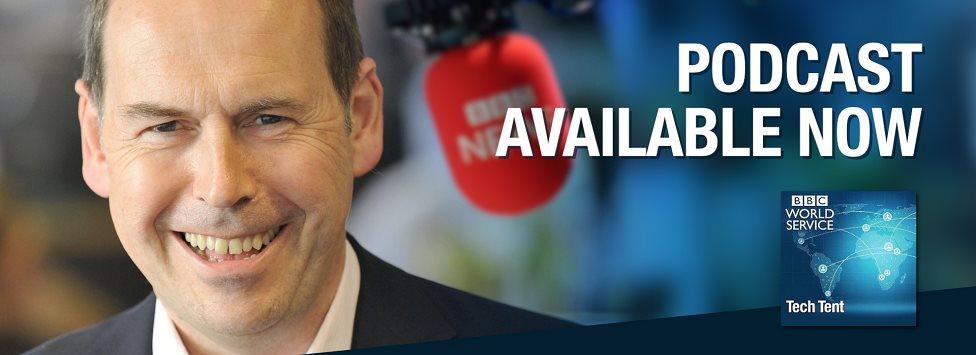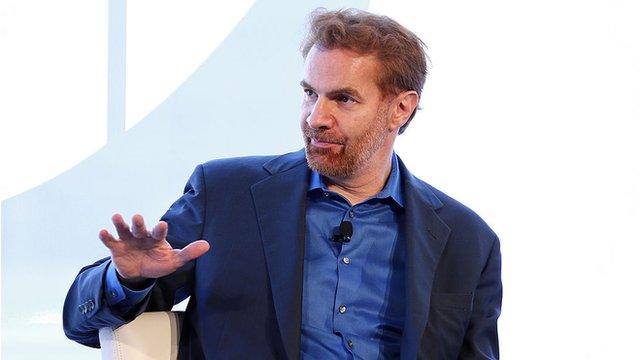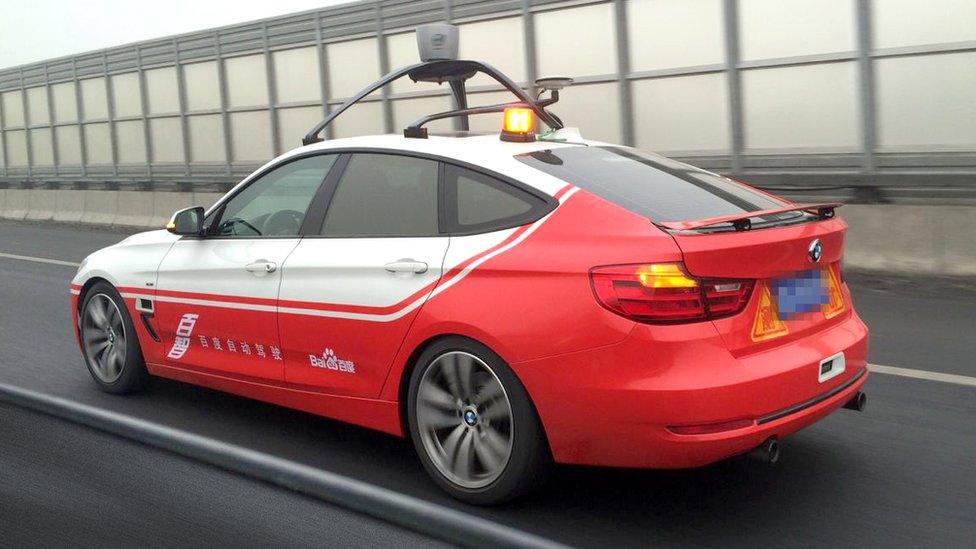Tech Tent - the Second Machine Age
- Published

Stream or download, external the latest Tech Tent podcast
Listen to previous episodes on the BBC website
Listen live every Friday at 15:00 GMT on the BBC World Service

From driverless cars to smartphone apps offering instant translation, the evidence of rapid progress in artificial intelligence is now clear to see. On this week's Tech Tent we report on two tech giants, Facebook and Baidu, which are spending heavily on artificial intelligence research. And we meet the man who was among the first to predict just how disruptive the automation revolution was going to be.
Erik's Automation Anxiety

Middle-skilled routine tasks could be hit hard by automation
When a book called The Second Machine Age was published in 2014 it had a far greater impact than most academic works. But the timing of Erik Brynjolfsson and Andrew McAfee's book about the wave of automation sweeping through the workplace was perfect, as the world woke up to the rapid progress of computing and robotics and grew anxious about it.
Compared with some later predictions, the two authors were relatively optimistic about our ability to adapt to this new era. But when we interviewed Prof Brynjolfsson, who was in Oxford this week to give a lecture about the next phase of the second machine age, his mood seemed to have darkened.
He says the good news is that the technology is advancing even faster than predicted, but he is very disappointed with how politicians have reacted: "We haven't made the adjustments we need to make, more and more people are being left behind."
He ascribes a lot of the popular anger we have seen erupt recently to the effects of the automation revolution. That might seem strange given the fact that advances in areas like autonomous vehicles have yet to feed through to employment, but he says there has already been an impact on many jobs in what he calls "middle-skilled routine information processing".
The effects on people like travel agents, bank managers, and office workers have been more subtle than just mass unemployment - wages have been falling and there are fewer job openings. "As a result we're seeing median income stagnating," he says. "It's not just an economic issue, increasingly it's a social or even health problem."
And that's happening even before the real impact of advances in artificial intelligence is felt. "The biggest wave is yet to hit," he says.
That message does not seem to be getting through to the Trump administration. Asked whether robots threatened American jobs, Treasury Secretary Steven Mnuchin said recently: "It's not even on our radar screen... 50-100 more years."
Prof Brynjolfsson grimaced when I mentioned this to him - and said Mr Mnuchin needed to read his book.
Facebook In Your Brain

Facebook's F8 developer conference talked a lot about AI
In 2004, a Harvard undergraduate launched a website designed to act as somewhere his fellow students could check each other out and perhaps hook up. Fun, but hardly the cutting edge of technology even then.
So who would have thought that 13 years later Facebook would be a major force in artificial intelligence and would be outlining plans to transform its users' view of the world through augmented reality and even let them control what happens around them through their minds?
But those were some of the ideas unveiled at Facebook's F8 developer conference this week. Many of its initiatives centre around Facebook Messenger, which last year became a platform for bots, little morsels of AI software responding to all sorts of user needs. We hear from the man in charge of Messenger David Marcus.
Lately, many of the innovations in Facebook's apps appear to be imitations of another popular messaging service - we ask whether the company is actually more focused on squashing Snapchat than pushing back the frontiers of AI.
Baidu Opens Up

Heavy traffic in Beijing might scupper plans to make cars more autonomous
This week, a company which invests heavily in artificial intelligence and in driverless cars announced that it was opening up its autonomous vehicle research so that its collaborators and even its rivals could use it. That sounds like Google, right?
In fact, it was the world's other big internet search firm, China's Baidu, which made the announcement at the Shanghai Auto show. Baidu's ambitions mirror those of Google, and it's now using its wealth and its AI expertise to muscle in on the motor industry.
It's a reminder that AI research is not just happening in China but is becoming a vital weapon for any ambitious technology firm. Mind you, as our Shanghai correspondent Robin Brant tells us, autonomous vehicles will face the ultimate challenge when they try to navigate the crowded and sometimes chaotic roads of China's cities.
- Published19 April 2017

- Published19 April 2017